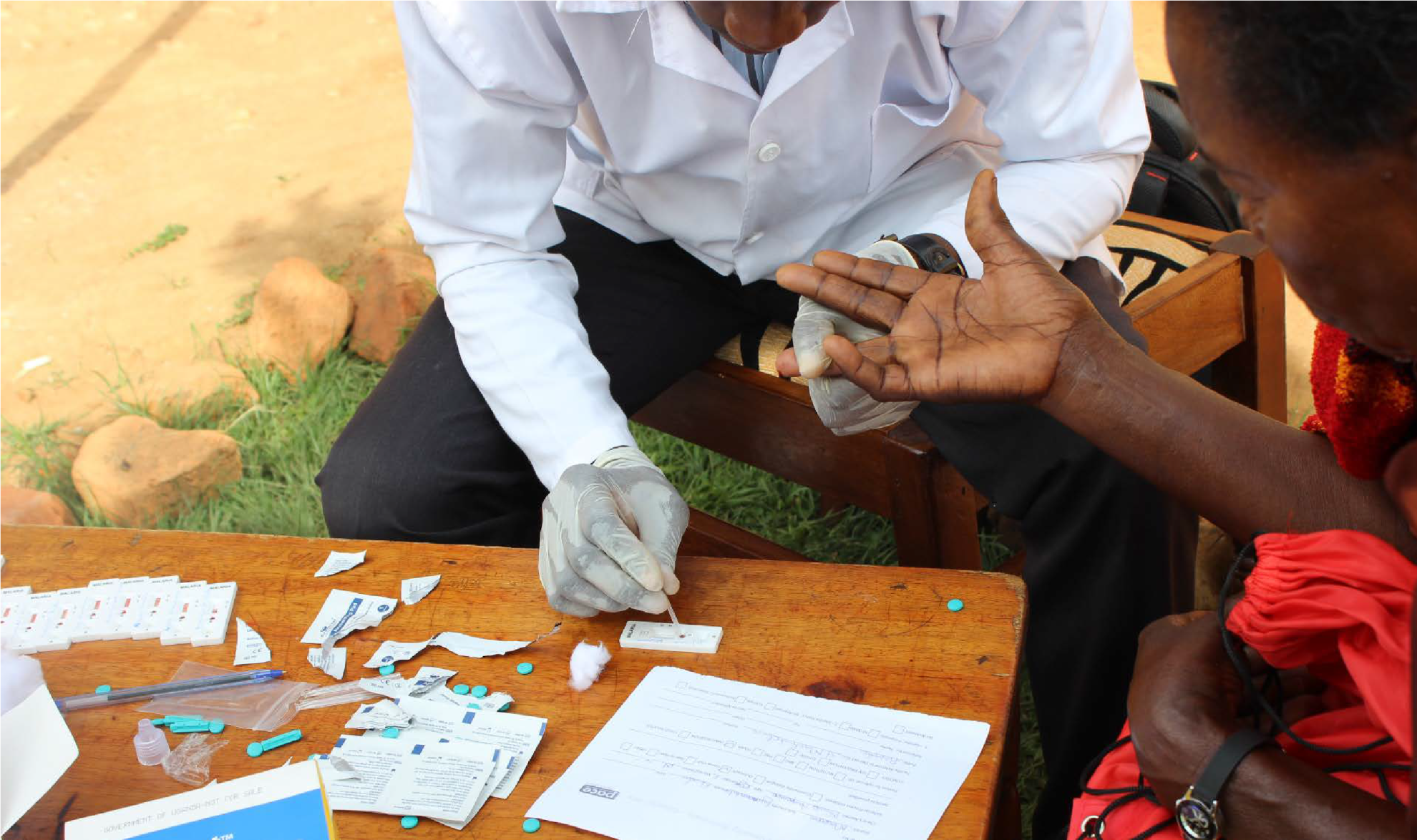
COVID-19 and malaria: How surveillance systems can adapt to fight both
23 September 2020When COVID-19 was declared a pandemic by WHO in March 2020, governments and organisations involved in the prevention and control of malaria had a choice to make – divert their attention from the diagnosis, control and prevention of malaria to that of COVID-19, or leverage the existing surveillance systems to fight both as effectively as possible.
Today marks the start of the 31st Meeting of the RBM Partnership Surveillance, Monitoring, and Evaluation Reference Group (SMERG), and with it an opportunity for partners and stakeholders engaged in the fight against malaria to share if and how this is working in practice.
“Strong surveillance is the foundation for robust health systems. The COVID-19 pandemic brings with it risks of a diversion of resources and a drop in surveillance for other diseases like malaria. It is critical, at this time, to listen to a breadth of perspectives from different countries to reflect on our experience and lessons learnt. Collectively we’ll be able to better identify priorities, document best practice and identify optimal approaches that address both new and existing surveillance challenges.” Arantxa Roca-Feltrer, Head of Surveillance, Monitoring and Evaluation at Malaria Consortium and RBM MERG co-chair.
Malaria Consortium’s approach to surveillance is guided by a clear vision of how it can strengthen a health system. Consistent surveillance tracks disease incidence and outbreaks and provides information on utilisation of health resources and facilities, informing existing approaches and allowing evidence to be shared with partners and communities. What is clear from the last six months is that accurate real-time local surveillance, together with robust health services and proven strategies will be needed to effectively tackle COVID-19 alongside other disease outbreaks in local clusters, enabling lives and livelihoods to face minimal disruption.
To support surveillance practices, Malaria Consortium has contributed to published guidelines designed to support malaria surveillance monitoring and evaluation during the pandemic. This piece of work was undertaken by the RBM Monitoring and Evaluation Research Group (MERG) in joint partnership with WHO workstreams and multiple partner efforts in response to faltering surveillance due to COVID-19 restrictions imposed in a number of countries and are available on the RBM Partnership to End Malaria website.
In particular, the guidelines help address how existing routine health information systems make it possible to leverage existing data to fill the data gap created. Data from these systems can help to build a picture about the continuity of malaria services during the pandemic and help actors to interpret their data to understand:
- How are the systems that diagnose, treat, and report malaria being affected by COVID-19?
- Are unusual changes in malaria incidence occurring? If so, are these changes influenced by COVID-19?
- Are non-malaria fevers, which may be attributable to COVID-19, increasing?
- Are lessons being learnt that may inform short, medium, and long-term actions for malaria surveillance?
In order to answer these questions, the RBM MERG guidance outlines a four-step plan to be followed by health services and organisations with oversight of health reporting systems. The guidance will continue to be updated as the situation evolves and an improved understanding of how to best address operational challenges experience when implementing these steps in the field is established.
Step One: Continuing to monitor key malaria indicators to assess where disruptions to access to care and health service provision may be occurring.
Key malaria indicators include the availability of commodities such as rapid diagnostic tests and malaria drugs, the uptake of health care services by age and sector (public/private), reporting levels to the relevant information systems, case management outcomes and general trends relating to malaria incidence and hospitalisations.
Step Two: Analysing and interpreting the indicators
The analysis and interpretation of data should continue as normal with analysis taking into account temporal trends over a period of at least three years, while also considering the quality of the data and any limitations that may have affected the data. All analysis should be extracted only from complete data sets that is reported consistently.
Step Three: Understanding the context around the interpretation of key indicators
Due to the presence of COVID-19, a key pillar of MERG’s guidance relates to the considering of structural changes or disruption to malaria programmes and policies. This could include lockdown measures and travel restrictions, impact on health-seeking behaviour due to fear of COVID-19, changes to fever case management which impacts diagnostic algorithms for malaria and disruption of malaria prevention campaigns such as seasonal malaria chemoprevention or insecticide-treated net distribution.
Step Four: Tailoring the actions to observed malaria trends
Once data relating to the malaria indicators has been analysed and contextualised, potential mitigating actions can be formulated and implemented. The actions taken will differ from country to country, but MERG’s guidance outlines potential actions relating to the indicators outlined in Step One. The MERG guidance is also designed to interact with other existing documents produced by WHO and RBM to support the tailoring of malaria interventions in the COVID-19 response and other pre-existing guidance relating to the analysis and use of health facility data. An example of potential action taken could be the adaptation of COVID-19 communications campaigns to address a fall in health facility attendance for non-COVID related issues.
Further reading:
Tailoring malaria interventions in the COVID-19 response- WHO
Analysis and use of health facility data- WHO
Related content
11 May 2020
Integrated Community Case Management (iCCM) and COVID-19
Latest news
- Malaria Consortium honoured by Ugandan government for contribution to combat malaria23rd April 2024
- International summit calls for AMR accountability in public health interventions21st March 2024
- Global SMC community celebrates new milestone at SMC Alliance Annual Meeting in Nigeria6th March 2024
- Scaling up key interventions could halve pneumonia-related childhood mortality13th February 2024
- Malaria Consortium and eGov Foundation join Mozambique’s national malaria programme to digitalise seasonal malaria chemoprevention campaigns8th February 2024
- World’s first malaria vaccine rollout launched in Cameroon22nd January 2024